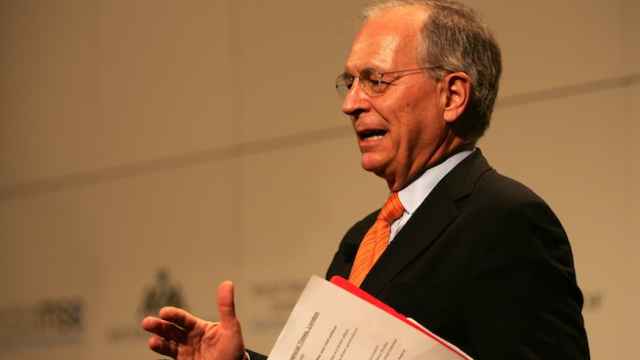Crimean regional authorities estimated that local inhabitants can subsist on 5,786 rubles ($125) a month, or nearly 30 percent less than the national average.
Crimea's regional Labor and Social Protection Minister Yelena Romanovskaya said the "low level of the subsistence minimum in Crimea is due to the fact that prices for basic foods on the peninsula are much lower than in [nearby] regions," according to remarks cited on the Crimean administration website on Tuesday.
The subsistence level is the amount of income that is considered necessary to cover the most basic needs of a person living in a given country or region.
The head of Crimea's administration, Sergei Aksyonov, has proposed that local officials test whether it would be possible to survive on the subsistence level they had estimated, according to the government statement.
"Conduct an experiment [to see] whether it's possible to buy the necessary minimum of foods every day on that money," he was quoted as saying. "Is it possible to stay within that sum?"
Crimea's subsistence sum is slightly higher for residents of a working age, who are expected to be able to survive on 6,211 rubles ($135) a month. It is lower for children, at 5,884 rubles, and retirees, at 4,780 rubles per month.
Russia's national average is 8,086 rubles, according to the administration's statement. According to data from Russia's Pension Fund, the subsistence level for retirees has been set at 6,312 rubles per month in the nearby southern region of Krasnodar, and at 6,350 rubles per month in the Rostov region, where many of Ukrainians seeking to escape the violence in the east of their country between pro-Moscow separatists and government forces have fled.
A Message from The Moscow Times:
Dear readers,
We are facing unprecedented challenges. Russia's Prosecutor General's Office has designated The Moscow Times as an "undesirable" organization, criminalizing our work and putting our staff at risk of prosecution. This follows our earlier unjust labeling as a "foreign agent."
These actions are direct attempts to silence independent journalism in Russia. The authorities claim our work "discredits the decisions of the Russian leadership." We see things differently: we strive to provide accurate, unbiased reporting on Russia.
We, the journalists of The Moscow Times, refuse to be silenced. But to continue our work, we need your help.
Your support, no matter how small, makes a world of difference. If you can, please support us monthly starting from just $2. It's quick to set up, and every contribution makes a significant impact.
By supporting The Moscow Times, you're defending open, independent journalism in the face of repression. Thank you for standing with us.
Remind me later.





